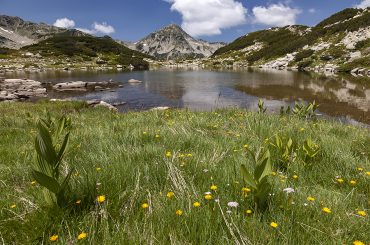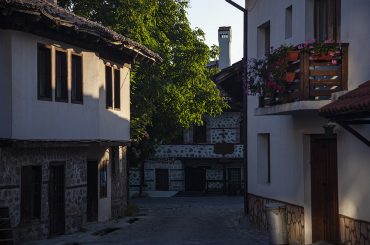Details of the 180 applications for digital nomad residency given in a press conference this week headed by Alex Muscat, junior minister for citizenship and communities, reveal what industry sources have long predicted: Malta’s digital nomad visa has failed to take off in any significant way.
Malta’s digital nomad residency was launched at the beginning of last June, and the figures given in the press conference – of applicants, not residence permits granted – would make the number of applicants amount to an average of 6 a week.
Further analysis of the profile of applicants shows that they fit more closely in the profile of remote workers than digital nomads. Statistics show that 50 percent of the applicants are employees, 42 percent are self-employed (a bulk of these either partners or shareholders in a business), and only 8 percent are freelancers.
Analysis of wider trends in fact show that digital nomads, who are mainly freelancers or self-employed (work for a client or set number of clients on per-hourly basis), have been heading in the other direction.
The trend of incoming digital nomads registered with Nomad List, an online platform for digital nomads, shows diminishing arrivals for Malta. Sliema, Malta's most metropolitan town, is the only place in Malta that features on Nomad List, and the numbers, which began a downward slide at the beginning of 2019, have now flattened.

Gonçalo Hall, chief executive of NomadX, a global digital nomad community and consultancy, told this website: “I think Malta got everything wrong [with pitch/setup of Nomad Residence Permit], starting with the name of the visa – nomads don’t need a residence permit, remote workers do – and the fact that the promotion was not community-based.”
Hall has become something a leader in the digital nomad circuit since he turned a sleepy village in Madeira, called Ponta do Sol, into a nomad village last February. Madeira is a Portuguese island in the Atlantic Ocean 700km off the cost of Morocco, and less than double the size of Malta and Gozo combined.
Madeira has since attracted thousands of nomads – numbers vary from 4,600 to 12,000 nomads – who spend an average of more than 2 months at the nomad village.

Hall attributes Madeira’s success to one overarching factor: community.
A recent article in Sifted explored in detail the ‘community’ that made Madeira a success. Community enables the nomads to create a scene around events, social activities, entertainment, and outdoorsy adventures. It also evolves around coworking places – a form of open office that enables digital nomads to work in a social environment other than being isolated in corner of one’s bedroom or living room.

Community still remains nascent in Malta, and that is one of the major weaknesses. Although Malta has various coworking place, most have a corporate feel, and attempt to appeal for companies as well as individuals.
“There is a mismatch between what governments understand, and what digital nomads really are about,” Hall said. “Most places are targeting remote workers [like Malta] but then refer to them as digital nomads, and set up a digital nomad visa.”
Hall says that places that are not low-cost, like Malta, have to position themselves to capture niche parts of the market within the growing location-independence industry.
“Expensive destinations have to go for the niches,” he says. “In the case of Malta, entrepreneurs seem to love it and consider moving their company there, so that should be the number one focus.”

Analysis of the 180 applications that applied for digital nomad residence in Malta shows that the larger bulk are remote workers on high-income brackets. They have an average income of €60,000 per year, and half of them hail from the 4 countries – America, United Kingdom, India and China. Their average age is 37. The predominance of Americans suggests that applicants are remote workers attracted to Malta for its two primary strengths: English being a co-official widely-used language and its position in the Schengen zone (which enables remote workers to travel hassle-free to any Schengen country for up to 3 months).
Hall has been busy creating what he refers to as “more communities around Madeira”, a new program in Cape Verde, another cluster of islands in the Atlantic. A recently-launched website focuses on the allures of an island location, community, and lifestyle wholesomeness.
Andreas Wil Gerdes, a longtime Malta resident and German entrepreneur of mobile communications who has become something of a guru in location-independent living, is also critical of tax rules of digital nomad residency. The rules specify that that residence holders would have to continue paying taxes in their home country.

Yet remote workers, which Malta seems to be attracting, may seek to semi-settle in Malta or make it their base, and be interested in actually paying taxes in Malta.
He said: “Malta should have applied the Malta model on taxation: that people only pay tax on money they remit to Malta or money earned from work they perform in Malta.”
He added that remote workers have to be “offered a headache-free scaleable tax solution, and that means offering them the option of tax residence.”






2 Comments
Tax residence does not help Americans, who must pay US tax on their world-wide incomer forever.
I think Andreas Gerdes referred to tax residence as an option – hence residence holders would be able to choose if they continue paying tax in their home country or in Malta. Besides, I believe Malta and the US have a double taxation agreement, which means you would get the chance to opt out of paying tax in Malta if you pay tax in the US.